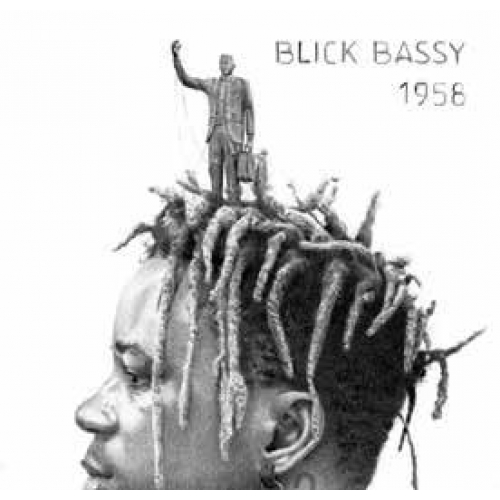Sung in Bassa, his ancestral language, 1958 is Blick Bassy’s new album, paying tribute to those who fought and died for his native Cameroon. Unexpectedly, mellow and melodious, this is a moving and dignified tribute to Bassy’s homeland. The main narrative is the life of Ruben Um Nyobé, the anti-colonialist leader of the Popular Union of Cameroon (UPC) from the same region and ethnic group as Bassy, shot dead by French troops in 1958, two years before the country’s independence. Bassy’s aim is to draw attention to history and point of view that might otherwise be ignored.
Always more difficult to interpret fully in an unfamiliar language, for a non-Bassa speaking listener the music and the ambience are the key carriers of meaning. Musically cohesive, the album sounds monumental on the scale of Les Mis, portentous enough to warrant theatrical staging. 1958 opens with ‘Ngwa’; it is by turns orchestral and operatic. The vastness of the emotion and extent of human tragedy is conveyed in the haunting, elegiac quality of Clement Petit’s cello. As the track builds and the volume increases, the emotion intensifies like a grey curtain being pulled back on a drama in which one hears Bassy brief the ghost of Um Nyobé.
Although born in Cameroon, Bassy now lives in France. Whilst traditional in its use of Bassa rhythms, there is a clear influence of his adopted home and colonists on 1958. The guitars in particular are suggestive of the tenuousness of cultural identity and on ‘Nguiyi’ and ‘Kundé’ serve to show that in gentleness there is strength. In fact, whilst the use of Bassa does put non-speakers on the outside of the album, the instruments and emotiveness of Bassy’s voice do their best to bring us firmly in. On ‘Woñi’, Alexi Merrill’s melancholic trumpet combines with upbeat rhythms to do just that. Similarly, there are places where more modern keyboard sounds combine with Cameroonian beats to create an unexpected new voice.
‘Pochë’ is perhaps the most cinematic and beautiful of tracks, reminding modern Cameroonians of those who betrayed the country’s true interests. It is full of passion that is almost Mediterranean in its heat and dark romance. The final track, ‘Where We Go’, is the only one with an English title and a few of the lyrics are, too, meaning at least some of the track seems more familiar and accessible.
What we are most mindful of here is not just the power of art to transcend cultural boundaries but also its ability to create them. 1958 captures the depths of suffering with tremendous grace and dignity.
1958 will be released on 8th March 2019 through No Format/Tôt ou Tard.




